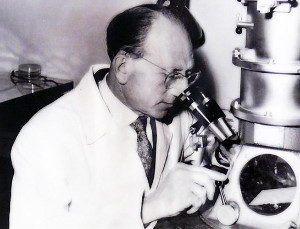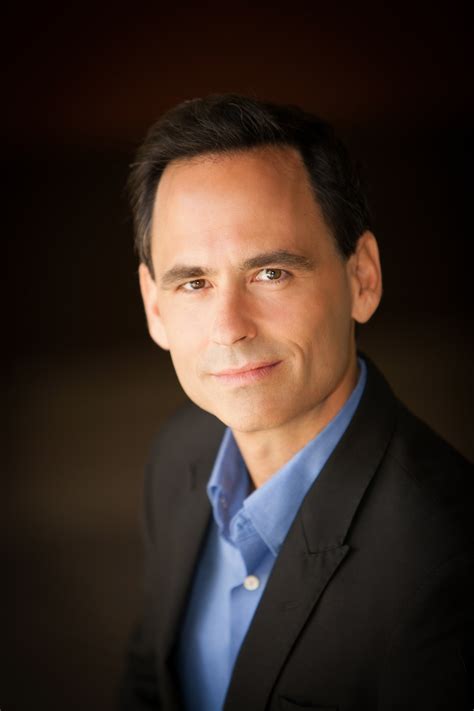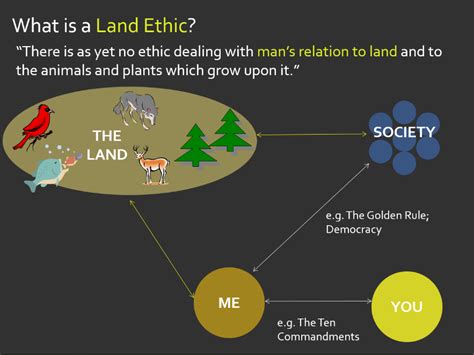Top 598 Evolutionary Quotes & Sayings - Page 9
Explore popular Evolutionary quotes.
Last updated on April 20, 2025.
Polls show that most people in the world favor humbler, more compassionate solutions to our common problems. Not only favor them but, resolving to love in a more complete and final way, try to put them into action. A society based on universal compassion is not just our only hope; it is an evolutionary imperative.
It is naïve to suppose that the acceptance of evolution theory depends upon the evidence of a number of so-called "proofs"; it depends rather upon the fact that the evolutionary theory permeates and supports every branch of biological science, much as the notion of the roundness of the earth underlies all geodesy and all cosmological theories on which the shape of the earth has a bearing. Thus antievolutionism is of the same stature as flat-earthism.
The task of evolutionary psychology is not to weigh in on human nature, a task better left to others. It is to add the satisfying kind of insight that only science can provide: to connect what we know about human nature with the rest of our knowledge of how the world works, and to explain the largest number of facts with the smallest number of assumptions.
I am a member of a fragile species, still new to the earth, the youngest creatures of any scale, here only a few moments as evolutionary time is measured, a juvenile species, a child of a species. We are only tentatively set in place, error prone, at risk of fumbling, in real danger at the moment of leaving behind only a thin layer of of our fossils, radioactive at that.
I have shown that those who deplore Artificial Intelligence are also those who deplore the evolutionary accounts of human mentality: if human minds are non-miraculous products of evolution, then they are, in the requisite sense, artifacts, and all their powers must have an ultimately mechanical explanation. We are descended from macros and made of macros, and nothing we can do is beyond the power of huge assemblies of macros.
Evolutionary biologists often avoid using the term "race" because there is so much racist baggage that comes with the term. However, they are often okay with the idea that the genealogy of human groups within our species can sometimes be inferred in much the same way as the genealogy of different species.
A total spiritual direction given to the whole life and the whole nature can alone lift humanity beyond itself. . . It is only the full emergence of the soul, the full descent of the native light and power of the Spirit and the consequent replacement or transformation and uplifting of our insufficient mental and vital nature by a spiritual and supramental Supernature that can effect this evolutionary miracle.
As evolutionary time is measured, we have only just turned up and have hardly had time to catch breath, still marveling at our thumbs, still learning to use the brand-new gift of language. Being so young, we can be excused all sorts of folly and can permit ourselves the hope that someday, as a species, we will begin to grow up.
It is my conviction that if any professional biologist will take adequate time to examine carefully the assumptions upon which the macro-evolution doctrine rests, and the observational and laboratory evidence that bears on the problem of origins, he/she will conclude that there are substantial reasons for doubting the truth of this doctrine. Moreover, I believe that a scientifically sound creationist view of origins is not only possible, but it is to be preferred over the evolutionary one.
The chemical differences among various species and genera of animals and plants are certainly as significant for the history of their origins as the differences in form. If we could define clearly the differences in molecular constitution and functions of different kinds of organisms, there would be possible a more illuminating and deeper understanding of question of the evolutionary reactions of organisms than could ever be expected from morphological considerations.
We add that it would be all too easy to object that mutations have no evolutionary effect because they are eliminated by natural selection. Lethal mutations (the worst kind) are effectively eliminated, but others persist as alleles. ...Mutants are present within every population, from bacteria to man. There can be no doubt about it. But for the evolutionist, the essential lies elsewhere: in the fact that mutations do not coincide with evolution.
People can leave seasteads, or people can choose them, and people can create new seasteads if they want. This fluidity will engage an evolutionary market process that'll allow a diversity of societies to emerge that will in principle be superior, simply because people chose them. Governments on land don't allow this fluid dynamic of choice.
The theory of natural selection is the centerpiece of The Origin of Species and of evolutionary theory. It is this theory that accounts for the adaptations of organisms, those innumerable features that so wonderfully equip them for survival and reproduction; it is this theory that accounts for the divergence of species from common ancestors and thus for the endless diversity of life. Natural selection is a simple concept, but it is perhaps the most important idea in biology.
Whether or not enlightenment is a plausible goal for us is a vital question for our lives. If it is possible for us to attain such perfect enlightenment ourselves, our whole sense of meaning and our place in the universe immediately changes. To be open to the possibility is to be a spiritual seeker, no matter what our religion. Enlightenment is not meant to be an object of religious faith. It is an evolutionary goal.
Modernity is a desert, and we are jungle monkeys. And so new evolutionary selective pressures are coming to bear upon the human situation, new ideas are coming to the fore. Psilocybin is a selective filter for this. The wish to go to space is a selective filter for this. Just the wish to know your own mind is a selective filter for this.
There has always been a longing in the human heart for a more just, free, loving and creative society. But it was never before possible to fulfill these aspirations, because we had neither the evolutionary drivers and global crises to force us to change, nor did we have the scientific and technological powers that can free us from the limitations of scarcity, poverty, disease, and ignorance. This is the time of awakening for the social potential movement.
Biochemists and biologists who adhere blindly to the Darwinism theory search for results that will be in agreement with their theories and consequently orient their research in a given direction, whether it be in the field of ecology, ethology, sociology, demography (dynamics of populations), genetics (so-called evolutionary genetics), or paleontology. This intrusion of theories has unfortunate results: it deprives observations and experiments of their objectivity, makes them biased, and, moreover, creates false problems.
Evolutionary theory tends to explain quite well in retrospect how various species emerged. It's not very good on prediction. Nevertheless, one cannot say that there isn't a lot of knowledge that's been obtained in this field. In the same way, with these complex physical phenomena between solid state physics, you can say a lot of things without necessarily knowing the next step.
For three million years we were hunter-gatherers, and it was through the evolutionary pressures of that way of life that a brain so adaptable and so creative eventually emerged. Today we stand with the brains of hunter-gatherers in our heads, looking out on a modern world made comfortable for some by the fruits of human inventiveness, and made miserable for others by the scandal of deprivation in the midst of plenty.
If there is any person that I do follow somewhat closely, at least ideas I like, it's been Frederich Nietzsche, but he's been dead a few hundred years. And at the same time, I wouldn't say that I actually, from a political standpoint, like many of his ideas. It just happened to be the core of a lot of my own beliefs of trying to modify my body and live indefinitely. What really applies is an evolutionary instinct to become a better entity altogether.
But that Franklin trip changed me profoundly. As I believe wilderness experience changes everyone. Because it puts us in our place. The human place, which our species inhabited for most of its evolutionary life. That place that shaped our psyches and made us who we are. The place where nature is big and we are small.
Our culture is obsessed with youth because we have lost the ancient knowledge that growth never stops. We are not transient, momentary mistakes in
the cosmos- evolutionary curiosities that rise like mayflies, swarm for a day, and are gone. We are players who are here to stay, and the universe was built with us in mind. We reflect it, with our deepest loves and loftiest aspirations, just as it reflects us.
Darwin's greatest achievement was to show that the appearance of purpose, planning, teleology (design), and intentionality in the origin and development of human and animal species was entirely an illusion. The illusion could be explained by evolutionary processes that contained no such purpose at all. But the spread of ideas through imitation required the whole apparatus of human consciousness and intentionality
I think art is the only political power, the only revolutionary power, the only evolutionary power, the only power to free humankind form all repression. I say not that art has already realized this, on the contrary, and because it has not, it has to be developed as a weapon, at first there are radical levels, then you can speak about special details.
Cultural diversity and cultural change are desirable and inevitable. We are cultural animals, someone without a culture is not human. But the cultures we possess vary enormously. Indeed, the variability, over time and space is the great evolutionary advantage of humanity. Instead of changing biologically over millennia, human beings can change culturally over decades
Put simply, behavioural economics argues that human beings' decision-taking is guided by the evolutionary baggage which we bring with us to the present day. Evolution has made us rational to a point, but not perfectly so. It has given us emotions, for example, which programme us to override our rational brain and act more instinctively.
We can now determine, easily and relatively cheaply, the detailed chemical architecture of genes ; and we can trace the products of these genes ( enzymes and proteins ) as they influence the course of embryology . In so doing we have made the astounding discovery that all complex animal phyla - arthropods and vertebrates in particular - have retained, despite their half-billion years of evolutionary independence, an extensive set of common genetic blueprints for building bodies.
There is an obvious evolutionary explanation for the scarcity of altruistic saints: Without a strong predilection for their own interests, our ancestors would have been unlikely to survive, reproduce, and give their own offspring a chance of doing the same. Now conditions have changed and for most of us, surviving and reproducing isn't such a struggle but we still carry the genes of our ancestors and they influence - not determine, but influence - our behavior.
We are now returning to the 18th century empirical approach with the new interest in the evolutionary basis of ethics, with 'experimental' moral philosophy and moral psychology. As a result, we understand better why moral formulas are experienced as ineluctable commands, even if there is no commander and even if the notion of an inescapable obligation is just superstition. So moral philosophy has made huge progress.
The neutral zone of selective advantage in the neighbourhood of zero is thus so narrow that changes in the environment, and in the genetic constitution of species, must cause this zone to be crossed and perhaps recrossed relatively rapidly in the course of evolutionary change, so that many possible gene substitutions may have a fluctuating history of advance and regression before the final balance of selective advantage is determined.
There are a whole other range of sciences that must deal with the narrative reconstruction of the inordinately complex events of history that can occur but once in their detailed glory. And for those kinds of sciences, be it cosmology, or evolutionary biology, or geology, or palaeontology, the experimental methods, simplification, quantification, prediction and repetition of the experimental sciences don't always work. You have to go with the narrative, the descriptive methods of what? Of historians.
In order to benefit; however, you must believe that life is plotting for you. We often resist this emerging impulse or this urge to emerge because we are afraid of change, right? To the ego, change is equivalent to danger or death. But when we deny this evolutionary call, it causes an inner pressure that must find an outlet, sometimes in destructive ways. And this can break out as disease, financial collapse, or relationship meltdown.
In order to survive, an animal must be born into a favoring or at least tolerant environment. Similarly, in order to achieve preservation and recognition, a specimen of fossil man must be discovered in intelligence, attested by scientific knowledge, and interpreted by evolutionary experience. These rigorous prerequisites have undoubtedly caused many still-births in human palaeontology and are partly responsible for the high infant mortality of discoveries of geologically ancient man.
In this situation, it becomes vital that our own country orient its policies in consonance with this basic evolutionary condition rather than pursue a course blind to the reality that the colonial era is now past and the Asian peoples covet the right to shape their own free destiny. What they seek now is friendly guidance, understanding, and support - not imperious direction - the dignity of equality and not the shame of subjugation.
Is there any indication we shouldn't be depressed - are you living on the same planet that I am? Do you ever think that depression might be the reasonable human response to the crap we're going through as a species, meant to propel us into the next evolutionary step, or at least into taking some different course of action so we might survive? Do you ever think that maybe it's the happy people that are really screwed up in the head?
In fact, one of the arguments for searching for intelligent life in space, elsewhere, is that we have no evidence that intelligence has any survival value. The most successful creatures on this planet are the cockroaches. They've been around, what is it, 100 million years or so and I suspect they'll still be there 100 million years in the future. Maybe intelligence is an evolutionary aberration which dooms its possessors in the way armor may have doomed some of the dinosaurs.
In a very real sense, therefore, advocacy of the doctrine of continuity [i.e evolutionism] has always necessitated on retreat from pure empiricism [i.e., logic an observation], and contrary to what is widely assumed by evolutionary biologists today, it has always been the anti-evolutionists [i.e creationist], not the evolutionists, in the scientific community who have struck rigidly to the facts and adhered to a more strictly empirical approach... It was Darwin the evolutionist who was retreating from the facts.
In proportion to our body mass, our brain is three times as large as that of our nearest relatives. This huge organ is dangerous and painful to give birth to, expensive to build and, in a resting human, uses about 20 per cent of the body's energy even though it is just 2 per cent of the body's weight. There must be some reason for all this evolutionary expense.
One cannot ignore half of life for the purposes of science, and then claim that the results of science give a full and adequate picture of the meaning of life. All discussions of 'life' which begin with a description of man's place on a speck of matter in space, in an endless evolutionary scale, are bound to be half-measures, because they leave out most of the experiences which are important to use as human beings.
I established the opposite view, that this history of the embryo (ontogeny) must be completed by a second, equally valuable, and closely connected branch of thought - the history of race (phylogeny). Both of these branches of evolutionary science, are, in my opinion, in the closest causal connection; this arises from the reciprocal action of the laws of heredity and adaptation... 'ontogenesis is a brief and rapid recapitulation of phylogenesis, determined by the physiological functions of heredity (generation) and adaptation (maintenance).
Evolution occurs in the world of time and space and form, whereas Spirit's primordial nature is finally timeless and Formless, prior to the of evolution but not other to it. We do not find Spirit or Emptiness by reaching some evolutionary Omega point in time, but rather by stepping off the cycle of time and evolution altogether (or ceasing to contract into it).
You know, in America, Christian fundamentalism vs. science. You know, be it teaching Darwinian evolutionary theory or stem cell res- You know, the whole thing, and then the issue of women being educated in Middle Eastern - I mean, it just seems so contemporary. In terms of spirituality, it's interesting because I actually think (her character in Agora) Hypatia is very spiritual.
We start out postulating sharp boundaries, such as between humans and apes, or between apes and monkeys, but are in fact dealing with sand castles that lose much of their structure when the sea of knowledge washes over them. They turn into hills, leveled ever more, until we are back to where evolutionary theory always leads us: a gently sloping beach.
The unfortunate are not as miserable as the world imagines. That urchins, the handicapped, orphans, prisoners and others are much happier than people think. And that language is a trap, that a dark evolutionary force has created languages to limit human thought. That writers are overrated fools. That all religions come from ancient comic writers. And the ultimate goal of comics is same as the purpose of humanity – to break free from language.
There is one brain organ that is optimised for understanding and articulating logical processes and that is the outer layer of the brain, called the cerebral cortex. Unlike the rest of the brain, this relatively recent evolutionary development is rather flat, only about 0.32 cm (0.12 in) thick and includes a mere 6 million neurons. This elaborately folded organ provides us with what little competence we do possess for understanding what we do and who we do it.
This all-pervading power is the power of divine love. It thinks. It organizes. It plans. It loves. It is the one which is the subtle of the ether, you can call it. It is the subtle of the matter. It is the subtle of your emotions. It is the subtle of your mental power. It is the subtle of your evolutionary power, but all integrated and coordinated in complete synchronization.
Very little comes easily to our poor, benighted species (the first creature, after all, to experiment with the novel evolutionary inventions of self-conscious philosophy and art). Even the most "obvious," "accurate," and "natural" style of thinking or drawing must be regulated by history and won by struggle. Solutions must therefore arise within a social context and record the complex interactions of mind and environment that define the possibility of human improvement.
When we look to presumed sources of origin for competing evolutionary explanations of the giraffe's long neck, we find either nothing at all, or only the shortest of speculative conjectures. Length, of course, need not correspond with importance. Garrulous old Polonius , in a rare moment of clarity, reminded us that "brevity is the soul of wit" (and then immediately vitiated his wise observation with a flood of woolly words about Hamlet 's Madness.
If belief in evolution is a requirement to be a real scientist, it’s interesting to consider a quote from Dr. Marc Kirschner, founding chair of the Department of Systems Biology at Harvard Medical School:
“In fact, over the last 100 years, almost all of biology has proceeded independent of evolution, except evolutionary biology itself. Molecular biology, biochemistry, physiology, have not taken evolution into account at all.
The 'key-log' which must be moved to release the evolutionary process for an ethic is simply this: quit thinking about decent land-use as solely an economic problem. Examine each question in terms of what is ethically and esthetically right, as well as what is economically expedient. A thing is right when it tends to preserve the integrity, stability, and beauty of the biotic community. It is wrong when it tends otherwise.
We are special in the sense that we can know our place in the cosmos. We can know our place in space. We are at least one of the cosmos's ways of knowing itself. That fills me with reverence and joy. Another insight I really want people to consider is this: everyone has gotten this far. Everyone you meet has made it this far. Nobody is superior to anyone else from an evolutionary standpoint.
There is no one "root of all evil" in software development. Design is hard in many ways. People tend to underestimate the intellectual and practical difficulties involved in building a significant system involving software. It is not and will not be reduced to a simple mechanical "assembly line" process. Creativity, engineering principles, and evolutionary change are needed to create a satisfactory large system.
Evolution is fundamentally creative, and when we align ourselves with the evolutionary movements of consciousness, the universe itself puts wind in our sails. Quantum thinking goes beyond the thoughts we're aware of; it includes unconscious processing, which doesn't just expand our boundaries, but can also free us from the suffering that conscious processing (sometimes known as 'the monkey mind') creates.
There is therefore no reason to put a limit to evolutionary possibility by taking our present organization or status of existence as final. The animal is a laboratory in which Nature has worked out man; man may very well be a laboratory in which she wills to work out superman, to disclose the soul as a divine being, to evolve a divine nature.
We should all be aware of the fact that when revolutionary - not evolutionary - changes come, things can get even worse. The intelligentsia should be aware of this. And it is the intelligentsia specifically that should keep this in mind and prevent society from radical steps and revolutions of all kinds. We've had enough of it. We've seen so many revolutions and wars. We need decades of calm and harmonious development.






















































